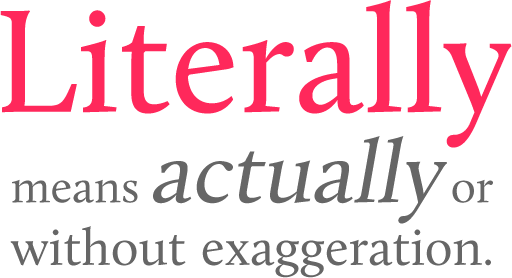Using language is like picking the right tool from a massive set of pedantically specific utensils splayed out in the disorganized room that is the mind of a 21st century digital native. There are beautiful, obscure, concise words to poignantly express exactly what’s intended, but people tend to latch onto a few wide-sweeping descriptors or generic responses to commonly asked questions.
I cannot speak to every individual’s vocabulary, of course. Only the limited-vocabulary people choose to share in what remains of passing exchanges in today’s world. It’s disappointing to ask a friend how an event or trip went expecting a story or fun snippet and hearing, “oh, it was lit,” with no follow up. Gen-Z is especially guilty of — among other crimes — opting into using lame words in lieu of neat ones. Confirming plans with “bet” instead of “I look forward to it/seeing you” strips the sincerity from the sentiment.
The simplest distinction between slang and shortcuts is how they make the recipient feel. Slang is a way for language to change and adapt to each generation that grows to wield it. It can stir the same feeling as using an inside joke among friends but on a cultural or sub-cultural scale. Shortcuts feel dismissive, like the recipient doesn’t warrant the breath for a proper response and instead receives an unenthusiastic combination of words heard hundreds of times prior. There’s little lonelier than baring your soul to a friend about a bad day and hearing, “oof, that’s rough.”
People cite verbal efficiency as the reason when confronted with this phenomenon, which may be true. Information is quantitatively exchanged in higher volumes when both parties prune away the unnecessary words and details. That’s a fine and dandy approach for a sushi conveyor belt kitchen staff or high action camera crew, but friendly conversations have no reason to slash the entertaining verbosity that makes for engaging human correspondence.
Clever conversation flourished when sitting on a porch and talking about the world around oneself with company was the best brain stimulation available. Southern children especially may be familiar with “visiting” with company like extended family and friends. Nowadays, the imagination may take an indefinite sabbatical and still find entertainment in shows, movies and books where a writer does the creative heavy lifting with composed dialogue and premises.
The clever clumps of the brain responsible for compiling fun responses collect dust in those unprompted to put on their thinking cap and find the double meaning or innuendo concealed in every unique conversation.
We have collectively conceded the effort to spice up the little interactions and allow ourselves to bore each other with the same three lines of dialogue we regurgitated to the last passing stranger. Of course, changing such a deeply entrenched and widely spread dynamic takes generations of unified effort to do so, which is wildly unlikely at the moment. As a tangible way to spearhead this effort today, try tossing in some alternatives for these commonly used and abused words.
Literally - In actuality, Indubitably, Undoubtedly, Legitimately, Objectively
Figuratively (for ironic awareness; this is in actuality an antonym)
Very – Incredibly, Dramatically, Notably, Outstandingly, Disgustingly, Grossly, Terribly
Good - Brilliant, Splendid, Superb, Enriching, Beneficial
Talk More Goodly: On wielding language nowadays
By Taner Morgan
December 1, 2020

Literally





